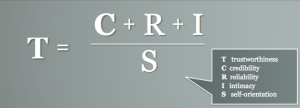Know Yourself. Wait, what does that even mean?
Know Yourself. It seems a timely topic these days – musically speaking, educationally speaking, pop-culture speaking. It’s also an old adage, from Socrates’ “know thyself” to Shakespeare’s “to thine own self be true.” We learned it in high school, but maybe we lost sight along the way.
What do you think? Do you know yourself? Are you willing to?
—-
In college, I majored in philosophy. I underlined all the important parts in my texbooks – the hard, the empirical, the deductive, the categorical. I underlined about half of each book. What I skipped over were the soft and squishy parts: know thyself, be virtuous, metaphysics, that kind of thing.
Years later I deigned to go to the School for Practical Philosophy. After a class or two, I realized it was powerful stuff. I also realized it was about the other half of the book – all the things I hadn’t underlined.
I still eschew the metaphysics stuff in favor of David Hume, but I have become a complete convert on the subject of Know Thyself.
Self-knowledge is one of the five trust skills that my co-author Andrea Howe and I describe in the Trusted Advisor FieldBook. In fact, it’s the capstone skill of the five skills we describe in that book, as well as in our workshop program Trust-based Leadership.
If “know yourself” strikes you as squishy, soft, fuzzy, left coast suburban buddhist hippie-talk homilies – like it used to strike me – then let me break it down and toughen it up for you. Because when you get it, it’s a lot tougher than the analytical subject-mastery behavioral neuro-babble that is too often celebrated in business today.
Know yourself means four things.
- To know yourself, you have to be able to see yourself objectively. The “you” that knows yourself cannot be the same as the “self” that you know. If you can’t do this, you’re doomed to always just doing and feeling the stuff that you always did and felt. You can’t do anything about it if you’re always in it. (Hang on, I’ll tell you how later).
- If you know yourself, then you know what makes you the same as, and different from, the other 7.091 billion humanoids on the planet. And you are more same than different. Get over your terminal uniqueness. You are better than some billions, worse than other billions, on billions of continua. You fall into the broad middle billions of humanity. You ain’t all that.
- Seeing who you are and recognizing your right-sized place in humanity, you can now find freedom. You don’t owe anybody anything, nobody owes you anything. Everything is a gift, or nothing at all. You make your own luck, you create your own suck. Your life is what you make of it, nothing more, nothing less. Success is heavily an inside job – happiness, completely.
- Once free, you can decide what to do with your freedom. Since you no longer need anything, you are free to give, and to make the world a better place. And the collateral damage of doing good is that you get good back in return.
Because the universe has a way of paying you back. I’m not talking about metaphysics and karma, I’m talking human nature. Way more often than not, people return good for good and evil for evil. By leading with good, you greatly increase the odds of receiving good. It’s not a cosmic principle thing – it’s just how people work. That’s concrete.
And it’s a powerful enough rule that you can make book on it – and do business based on it. It’s not guaranteed in every situation, instance or transaction – but it is ironclad in the long run across multiple events.
What Good is Knowing Yourself?
You mean, besides making you happy and free and attractive to other people? Well, OK, here’s just one concrete specific item.
You know how sometimes you find out that someone thinks way more highly of you than you thought they did? Or that they think much worse of you? Either way, you know the shock when you discover the disconnect?
Knowing yourself prevents those shocks, because there’s no disconnect. But that’s just the tip of the iceberg. By knowing who you are and aren’t, you can maximize your potential. You don’t cause friction, waste and slippage by under- or over-shooting, or by seeking more or less from others than you should. When you know who you are, you can calibrate exactly what impact you will create in any given situation – no more guessing, wishing, hoping. That is empowering.
How Am I Supposed to Do This?
I know, I know – how do you do this stuff? Where’s the tips and tricks, top ten lists, business processes and metrics that you need to do things?
Andrea Howe and I give you three concrete actions to take in The Trusted Advisor Fieldbook. They are:
- Look inward – basically, introspection. Lots of ways to do that. Write it down and share with others as you discover.
- Convert blind spots to insights – get feedback. Simple. Just go ask for it.
- Experiment – create learning opportunities. Put money where mouth is. Try stuff; evaluate; recalibrate; try again.
You can break each one down further – into processes, timeframes, sequences, metrics and milestones – if that’s your preferred style. Or, you can just swim in it. Both ways will work.
One last thing about knowing yourself. It’s not a step function, it’s incremental. You can always get better, and as you do, you reap the benefits at the same time. It’s a progressive thing. And anytime is a good time to start.

 “Intimacy” belongs in business. Yes, intimacy. Not the kind that was the subject of classic ‘40s movies, but the kind that is essential to building trust.
“Intimacy” belongs in business. Yes, intimacy. Not the kind that was the subject of classic ‘40s movies, but the kind that is essential to building trust. Superficially, they couldn’t be more different. One is old (and old school), one isn’t. One is in middle market banking, one in social media. Tie, open collar. Midwest, East.
Superficially, they couldn’t be more different. One is old (and old school), one isn’t. One is in middle market banking, one in social media. Tie, open collar. Midwest, East. It was five months ago, but I remember it like yesterday.
It was five months ago, but I remember it like yesterday. One of my sons regularly takes our dog to the local dog park. Recently, while breaking up some overly rough play between ours and another dog, my son was bitten and needed medical attention. Word spread quickly about the bite. To ward off rumors and gossip, and because the bite wasn’t the result of a vicious act, my son refused to say which dog bit him.
One of my sons regularly takes our dog to the local dog park. Recently, while breaking up some overly rough play between ours and another dog, my son was bitten and needed medical attention. Word spread quickly about the bite. To ward off rumors and gossip, and because the bite wasn’t the result of a vicious act, my son refused to say which dog bit him. Readers of this blog know that we often write about
Readers of this blog know that we often write about  What profession do you think has the most ultimate trusted advisors per capita? Consultants? Doctors? Financial planners? I now know where my vote goes. PICU nurses.
What profession do you think has the most ultimate trusted advisors per capita? Consultants? Doctors? Financial planners? I now know where my vote goes. PICU nurses.